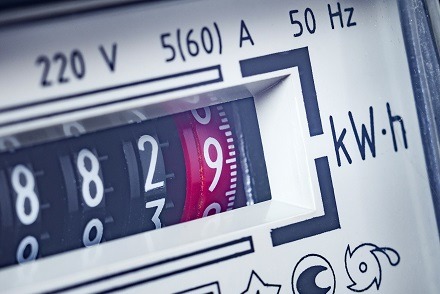The Energy Bill Relief Scheme (EBRS) appears to be causing some confusion. Wayne Thomas, partner at Bates Weston, takes a moment to recap the Energy Bill Relief Scheme.
The main point to grasp is that the EBRS only applies a discount to the wholesale element of your business’s energy use. It is not an energy price cap.
Energy Bill Relief Scheme
In September the Government announced the Energy Bill Relief Scheme (EBRS). The scheme automatically discounts energy prices for non-domestic customers between 1 October 2022 and 31 March 2023, that have signed an energy supply contract since 1 December 2021.
Most businesses and voluntary or public sector organisations are eligible for the support, except those that use gas or electricity for the purpose of generating power they sell back to the grid – power stations for example.
How does it work?
The Government has set baseline wholesale energy prices for electricity and gas, known as the “government supported price” (GSP). The wholesale element of non-domestic energy bills will be automatically discounted from 1 October 2022 in line with the Government supported price.
These are:
- £211 per megawatt hour (MWh) for electricity (21.1p/kWh)
- £75 per MWh for gas (7.5p/kWh)
It is important to note that the discount only applies to the wholesale element of your unit price. Your total unit price will be made up of
- Wholesale charges – the price your energy supplier pays for buying your electricity and gas from producers/importers
- Network costs – the cost of moving electricity and gas to your premises
- Supplier operating costs – the cost of maintaining the customer services department, billing, providing and reading business energy meters and other corporate functions
For fixed contracts the discount will reflect the difference between the government supported price and the relevant wholesale price for the day the contract was agreed.
For variable, deemed and all other contracts the discount will reflect the difference between the government supported price and relevant wholesale price, but subject to a maximum discount of £345/MWh (34.5p/kWh) for electricity and £91/MWh (9.1p/kWh) for gas.
The Government has supplied worked examples, which help to illustrate the mechanics of the scheme in practice. We’ve expanded on one example below:
A business signed a fixed term contract in August 2022 and uses 4,000kWh of electricity and 16,000 kWh of gas each month. Their contracted unit rates are currently 95p/kWh for electricity and 25p/kWh for gas.
| p/kWh | Electricity | Gas |
| Fixed contract unit rate comprising: | 95.0p | 25.0p |
|
59.1p | 17.5p |
|
35.9p | 7.5p |
| Government supported price (GSP) | 21.1p | 7.5p |
| Energy Bill Relief Scheme Discount, bringing wholesale price down to GSP | 38.0p | 10.0p |
| Discounted unit rate | 57.0p | 15.0p |
Once the discount has been applied to the wholesale element of the unit price, this business will pay 57p/kWh for electricity and 15p/kWh for gas.
The EBRS will run until the end of March 2023, after which the Government has suggested it will extend it on a more limited basis for “vulnerable” businesses. Commentators are expressing concern at the “cliff edge” many businesses may face in April 2023. Tighter operational resilience, better contingency planning, clearer risk assessments and robust financial viability reviews can help businesses navigate the economic turmoil.
If you would like our help with forward planning or in understanding the Energy Bills Relief Scheme, please do get in touch.

